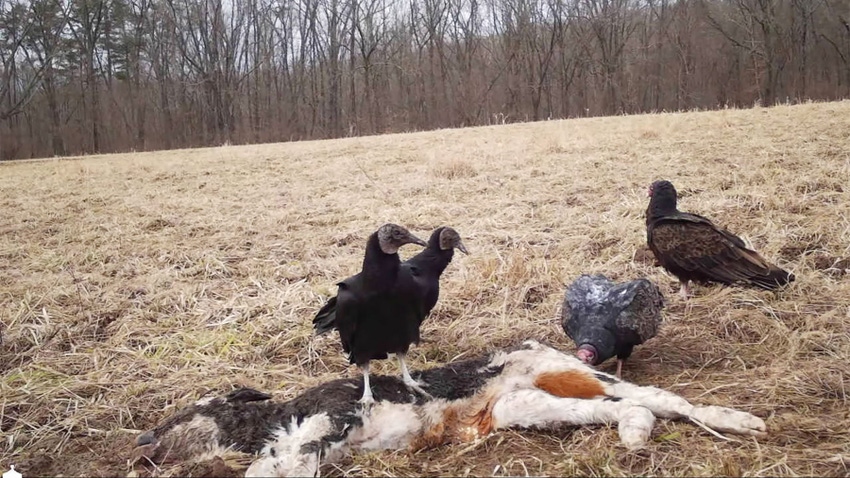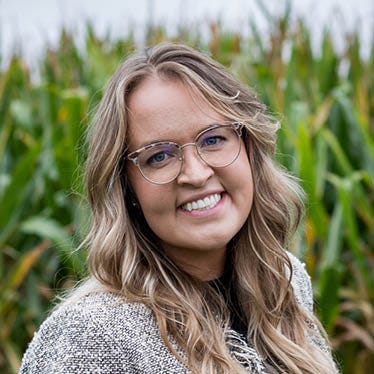April 25, 2024

Black vulture populations have increased significantly in the past decade, harming and killing young livestock. Once only a threat in southern Illinois, the birds have been migrating farther north every year.
The Migratory Bird Treaty Act protects black vultures from being hunted without permission, but Illinois Farm Bureau has secured permits on behalf of livestock producers to expedite the permitting process.
Threat to Illinois livestock
Teresa Steckler, University of Illinois Extension beef specialist, has been studying Illinois’ black vultures for decades.
“These birds are very adaptive and very cunning,” Steckler says. “They’ll find out when you’re calving, learn from each other, and teach subsequent generations.”
It’s important to distinguish turkey vultures from black vultures. Turkey vultures are only interested in dead animals, while black vultures prey on young cattle, horses, sheep, goats and swine.
“The flock will attack in a way that gets the cow away from calf — it’s pretty ugly,” Steckler says. “They’ll pick the calf’s eyes out and harm the calf to the point that the cow no longer wants it.”
Steckler says she’s heard stories of black vultures carrying piglets and attacking lambs and goat kids in their first five to 10 days of life.
The black vulture population has increased in the past five years, with reports as far north as LeRoy, Ill. Warmer-than-average winter temperatures have caused the birds to overwinter in southern Illinois, rather than migrate to the Southern U.S. They also have no natural predator, so they multiply rapidly.
Black vultures are protected by the Migratory Bird Treaty Act, meaning they cannot be killed without a migratory bird depredation permit from the U.S. Fish and Wildlife Service and a Class B nuisance wildlife control permit from the Illinois Department of Natural Resources.
Steckler’s advice for keeping black vultures away from livestock includes:
Don’t leave afterbirth in pastures, because it attracts birds.
Get rid of dead trees and old barns, as birds nest in them.
Take necessary measures to protect young livestock in their first week of life.
Build an effigy by hanging a black vulture carcass (from a permitted bird) upside down to keep birds away.
Permits available
IFB recently secured black vulture depredation permits through USFWS, effective from April 1 through March 31, 2025.
Steckler says the IFB permits are a step in the right direction for controlling the predator, and should expedite the permitting process.
“Now your local Farm Bureau office will help you secure a permit through the state IFB office,” she says. “The prior permitting process could take a month to get the permit, and by that time the vultures have moved.”
IFB will issue sub-permits to livestock farmers who are experiencing problems with black vultures and will assist in securing IDNR’s required permit. The sub-permit is available to livestock farmers facing depredation of commercial livestock including cattle, horses, sheep, goats and swine.
“Securing these federal depredation permits streamlines the application process and reduces cost to the producer,” says Brian Duncan, IFB president. “It is our hope that this process helps farmers access the necessary tools as quickly as possible to protect their livestock.”
Approved applicants will be allowed a maximum of three birds, determined after consultation with USDA Wildlife Services. Following the consultation and approval, a state permit will also be provided by IDNR. Applicants must agree to follow all rules and regulations required by USFWS in the IFB statewide permit and the requirements of the IDNR permit.
To request a sub-permit application, contact Tasha Bunting at IFB at [email protected].
About the Author(s)
You May Also Like






